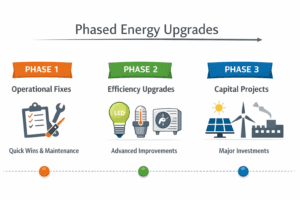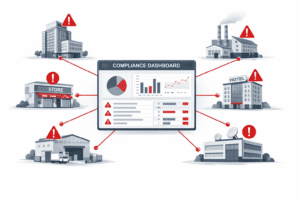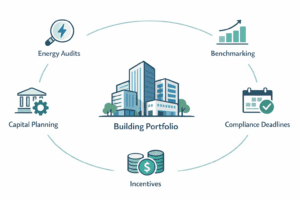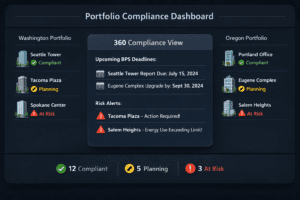I. Introduction
Construction Quality Assurance (CQA) ensures that all construction activities comply with the project specifications and standards required by the client or regulatory bodies. This process is critical in preventing defects and ensuring that the completed facility performs as intended. The stakes are high in construction; a minor oversight can lead to severe consequences, including safety incidents, financial losses, and legal disputes. Thus, understanding the importance of robust quality assurance procedures and recognizing how to avoid common pitfalls are essential for the success and sustainability of construction projects.
II. Defining Common Pitfalls in Construction Quality Assurance

In the realm of construction, common pitfalls in quality assurance can broadly vary but often involve several key aspects such as insufficient Construction Project Planning, ineffective Construction Inspection, lax Construction Documentation, poor implementation of Construction Technologies, and inadequate Construction Training. These pitfalls can lead to issues like structural failures, non-compliance with standards, excess costs, and project delays.
Examples include inadequate soil testing before construction begins, which can cause foundation issues, or the use of substandard materials which fail to meet safety codes. Another frequent mistake is skipping necessary inspections or audits to meet tight deadlines, thereby overlooking critical flaws that may affect the integrity of the building.
III. Tip 1: Detailed Planning
Effective planning is crucial in optimizing project delivery and ensuring quality. Incorporating comprehensive Construction Project Planning from the outset can help in foreseeing potential challenges and aligning resources accordingly. Steps to ensure detailed planning include:
– Development of a robust project scope: Clearly define work boundaries and deliverables.
– Risk assessment: Identify potential risks early in the planning phase.
– Resource allocation: Assign adequate tools, materials, and workforce to prevent resource shortages.
– Timeline scheduling: Set realistic timelines that include buffers for unexpected delays.
Adopting Construction Project Management tools can help maintain an organized approach to project planning. For more detailed strategies on construction planning, explore resources such as Planning in Construction.
IV. Tip 2: Regular Audits and Inspection
Regular audits and Construction Inspection are pivotal components of effective quality assurance. These activities ensure compliance with the predefined standards and help in identifying discrepancies early. Effective audits and inspections involve:
– Scheduled audits: Conduct periodic reviews at different stages of the project.
– Surprise inspections: Implement unscheduled inspections to get an unbiased on-site activity report.
– Engagement of third-party inspectors: Third-party auditors bring an external perspective and can help in maintaining unbiased quality control standards.
Incorporating tools like digital checklists and mobile apps for inspection can enhance the efficiency and accuracy of these processes. For insights into effective construction inspection practices, visit Effective Construction Inspections.
V. Tip 3: Proper Documentation and Record Keeping
Maintaining detailed and accurate Construction Documentation throughout the project lifecycle is non-negotiable. Documentation serves as a factual basis for decision-making and can protect a company in legal scenarios. Effective documentation practices include:
– Digital documentation systems: Implement software solutions for real-time data entry and storage.
– Regular updates and backups: Ensure all documents are up-to-date and backed up to prevent data loss.
– Accessibility and organization: Keep records organized and accessible to all stakeholders.
Software solutions like Autodesk Construction Cloud provide effective means for maintaining documentation digitally. To learn more about the benefits of digital documentation, check out Digital Construction Documentation.
VI. Tip 4: Using Advanced Technology
Advanced Construction Technologies play a crucial role in enhancing the precision and efficiency of construction projects. Implementing modern technologies such as AI in Construction can predict project risks and optimize processes. Key technologies include:
– Project management software: Tools like Procore or Autodesk BIM 360 enhance real-time project tracking and management.
– AI and machine learning: These technologies can forecast potential delays and suggest optimal resource utilization strategies.
– Drones and IoT: Use drones for aerial site surveys and IoT for real-time monitoring of site conditions.
For an in-depth understanding of how technology can transform construction processes, refer to Advancements in Construction Technology.
VII. Tip 5: Clear and Strong Communication
Clear communication is vital in ensuring that all project participants, from onsite workers to high-level stakeholders, are aligned with the project goals and updates. Effective communication practices include:
– Regular meetings: Hold frequent meetings to discuss progress and issues.
– Use of collaboration tools: Tools like Slack or Microsoft Teams can facilitate better communication.
– Documentation of communications: Keep records of all communications to track decisions and changes.
For more on improving communication in construction projects, explore Effective Construction Communication Techniques.
VIII. Tip 6: Continuous Training and Skill Development

Ongoing training and development are essential for keeping up with industry standards and new technologies. Skills development can be promoted through:
– Workshops and seminars: Regular educational programs can keep the team updated on the latest industry practices.
– Online courses: Platforms like Coursera or LinkedIn Learning offer courses on modern construction methods and technologies.
– Certification programs: Encourage staff to obtain certifications in their area of work to ensure high standards are met consistently.
IX. Conclusion
Avoiding common pitfalls in Construction Quality Assurance is pivotal for delivering high-quality, safe, and compliant construction projects. By implementing detailed planning, conducting regular audits, maintaining accurate documentation, using advanced technologies, ensuring clear communication, and promoting continuous training, construction professionals can significantly mitigate risks associated with construction projects.
Implement these strategic practices today and navigate your way to successful project completion. Embrace the challenge and transform construction standards within your projects!
VertPro.com is the go-to hub for contractors dedicated to elevating energy performance upgrades for their clients. Our expansive suite of offerings includes expert Commercial Energy Audits, adept Benchmark Compliance consultation, and expansive Construction Marketplace. At VertPro®, we pride ourselves on delivering cutting-edge SaaS technology solutions that simplify the journey through Energy Benchmarking, and Energy Audits/RCx Plus, all while maintaining full compliance with a myriad of more than 60 Energy Benchmarking and Energy Efficiency Regulations nationwide.
At VertPro.com, we don’t just provide the insights and tools for energy management; we also bridge connections between qualified contractors and our client base, eager to upgrade their buildings. This creates a Marketplace where you can expand your project portfolio, ensuring that you’ll have more opportunities to apply your skills and grow your business.















